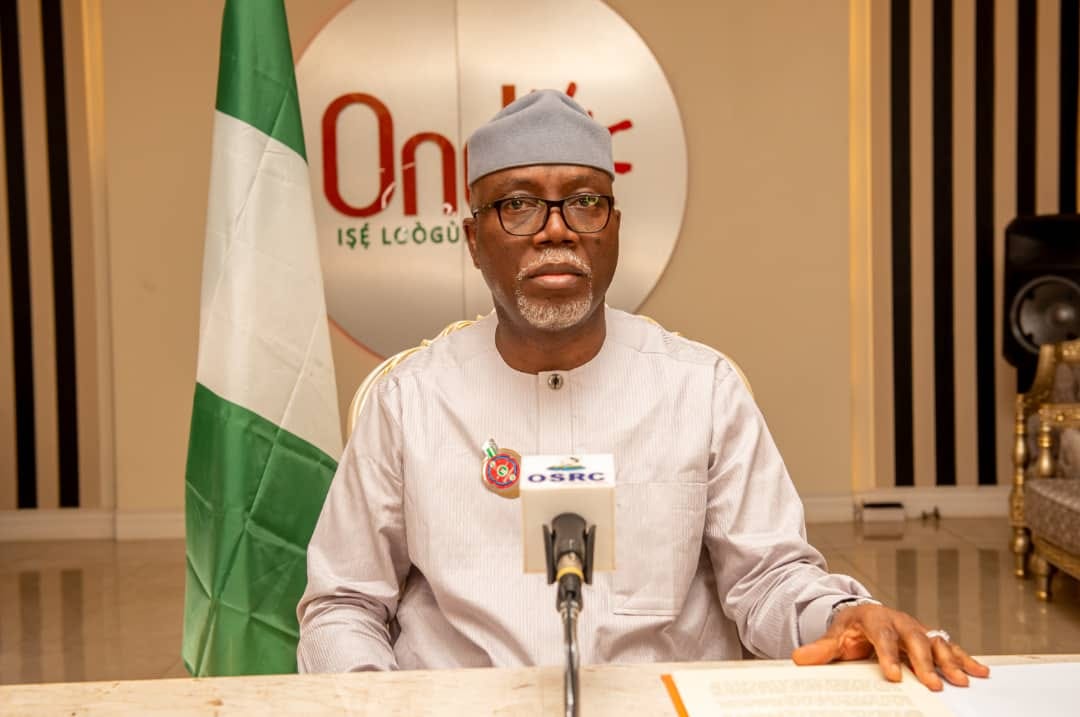- EFCC, Customs Place Fayose on Watch List, to Prevent Foreign Trip
The Economic and Financial Crimes Commission has written to the Nigeria Customs Service to place the outgoing Ekiti State Governor, Ayodele Fayose, on its watch list and prevent the governor from leaving the country through any land, air or sea borders.
The NCS has granted the request and circulated the EFCC directive to its area and zonal commands, directing that “you are to monitor the suspect and report to the EFCC through the provided contact details if sighted.”
The EFCC Acting Chairman, Ibrahim Magu, in a letter dated September 12 to the Customs’ Comptroller General’s office, stated that Fayose was under investigation and there was a suspicion that he might leave the country to evade the commission’s investigations.
Fayose, whose tenure will end on Monday, October 15, had last Monday written to the EFCC chairman, agreeing to report at the EFCC office on October 16 “to clarify issues or answer questions on issues within my knowledge.”
The governor’s letter was titled, “Notification of my decision to make myself available in your office to clarify issues or answer questions on issues within my knowledge” in which he noted that the EFCC was at liberty to pick another date if it was not satisfied with an October 16 appointment.
The EFCC had replied Fayose in a report on Saturday that he could report at the commission’s headquarters on September 20 for questioning, instead of waiting till his immunity lapsed on October 16.
In the letter with a reference number, ‘EFCC/EC/GC/31/2173’, and signed by the EFCC’s Director of Operations, Umar Mohammed, the anti-graft agency asked the governor to be obliged to come to the EFCC before the expiration of his tenure.
Our correspondent learnt on Sunday that the EFCC acting Chairman, Magu, had written to the Customs to place Fayose on its watch list and prevent any attempt by the governor to leave the country through air, land or sea borders.
Magu’s letter with a reference number, CR:3000/EFCC/ABJ/EG/TA/VOL.59 and dated September 12, is titled, “Request for watch-listing of persons, the case of conspiracy, abuse of office, official corruption, theft and money laundering.”
The commission wrote, “The under listed suspect is under investigation in connection with the above-mentioned offences and there is reasonable suspicion suggesting that he may likely leave the country either through the land borders, airports, seaports in order to evade investigation. Hence, you are requested to watch-list and arrest him.
“You are further requested to contact the commission through the following numbers in the event of his arrest. Name of the suspect: Fayose Ayodele Peter, Address: Ekiti State Government House, Ekiti State.”
The NCS in a letter, dated September 14, to its zonal coordinators, Customs area controllers, granted the request.
“Consequently, you are requested to monitor the suspect and report to the EFCC through the provided contact details if sighted,” the NCS letter partly said.
It was also learnt that apart from the Customs, the EFCC has also reached out to the police, the Nigerian Immigration Service and the Department of State Services to monitor Governor Fayose’s movements and arrest him in case he attempts to leave the country.
A source in the EFCC said, “The letter was copied to the police and the DSS. So, all the security agencies and border authorities have been notified about the governor in order to ensure that he does not flee the country.”
However, Fayose has berated the EFCC for putting his name on the watch list describing such move as political and petty.
A press statement issued by his Chief Press Secretary, Mr Idowu Adelusi, in Ado Ekiti on Sunday, quoted Fayose as saying he was in the Peoples Democratic Party and would remain there not minding any form of intimidation.
Fayose said he was not among those who were afraid to face tomorrow, reminding the anti-graft agency that nobody was God and God was not a man that He would condone injustice.
The governor stated that he had earlier informed the EFCC through a letter that he would come to their office on October 16, 2018. He wondered why the desperation, insisting that he would report on that day.
The statement read, “EFCC, when a woman is being brought to you as a wife, you don’t have to peep through the window to see her. As I said in my letter, Insha Allah, I will be in your office on October 16, a day after the expiration of my tenure.
“Putting my name on a watch list after notification of my coming is not only political but petty. I’m not among those who are afraid to face tomorrow. Nobody is God. They should expect me on October 16, 2018. I will remain in the PDP not minding their intimidation.”
Meanwhile, Fayose has said that he has neither obtained loans from any bank or bonds from the capital market since he assumed office on October 16, 2014.
He challenged the Debt Management Office and the All Progressives Congress to publish such record if available.
The governor also took a swipe at the Federal Government for releasing N16.6bn Paris Club Refund to Osun State about two weeks to the governorship election when that of Ekiti was withheld in a similar circumstance.
He said the refusal of the Federal Government to pay Ekiti the refund of the money spent on federal projects and withholding the Paris Club refund accounted for why workers’ salaries were not paid.
Fayose stated these on Sunday in a reaction to an allegation by the Transition Committee set up by the APC Governor-elect, Dr Kayode Fayemi, claiming that the state’s debt profile stood at N117bn.
He said, “I have not committed Ekiti to one Naira since I assumed office as governor for the second term. I haven’t borrowed from any financial institution. The DMO and the Federal Ministry of Finance are the approving authorities. Fayemi should publish any document from these approving authorities showing any money borrowed by my administration.
“I did not borrow from any financial institution or take any bond from the capital market. The figure which Fayemi is talking about is the money his administration borrowed which was restructured as it was done for other states.
“The administration of Fayemi brought Ekiti to N25bn bond and N32bn commercial loan and the state will pay the bond until year 2022. The commercial loan was restructured like it was done for other states,” he claimed.
The governor also justified the purchase of a new vehicle for himself and approval of the severance packages of his deputy and himself.
“When Fayemi was leaving as governor in 2014, he left with a car which he bought for himself and so did other governors before him. So, you can’t expect me also not to have a befitting car when I am leaving office. Fayemi is only displaying hypocrisy.
“Fayemi himself ordered a Jeep of almost N70m when l was still Governor-elect in 2014, but he didn’t pay for it. I had also bought a Jeep for former Governor Niyi Adebayo to honour him. That is how it is done every four years.”
On why he owes workers, he said, “If the Federal Government has paid all the outstanding debt it owes Ekiti, l would not owe salary now. The Federal Government owes Ekiti budget support of two months now, the Paris Club refund was withheld and they have refused to also pay the refund of N11bn for the federal roads which the state constructed.
“If they had paid these outstanding, I wouldn’t owe Ekiti workers any salary now. Deliberately, they withheld them so that I am not able to offset the four months workers’ salaries before the Ekiti election. Still, Ekiti people voted for the Peoples Democratic Party.”


 News3 weeks ago
News3 weeks ago
 Business3 weeks ago
Business3 weeks ago
 Technology3 weeks ago
Technology3 weeks ago
 Investment3 weeks ago
Investment3 weeks ago
 Banking Sector3 weeks ago
Banking Sector3 weeks ago
 Banking Sector3 weeks ago
Banking Sector3 weeks ago
 Appointments3 weeks ago
Appointments3 weeks ago
 Investment3 weeks ago
Investment3 weeks ago




























